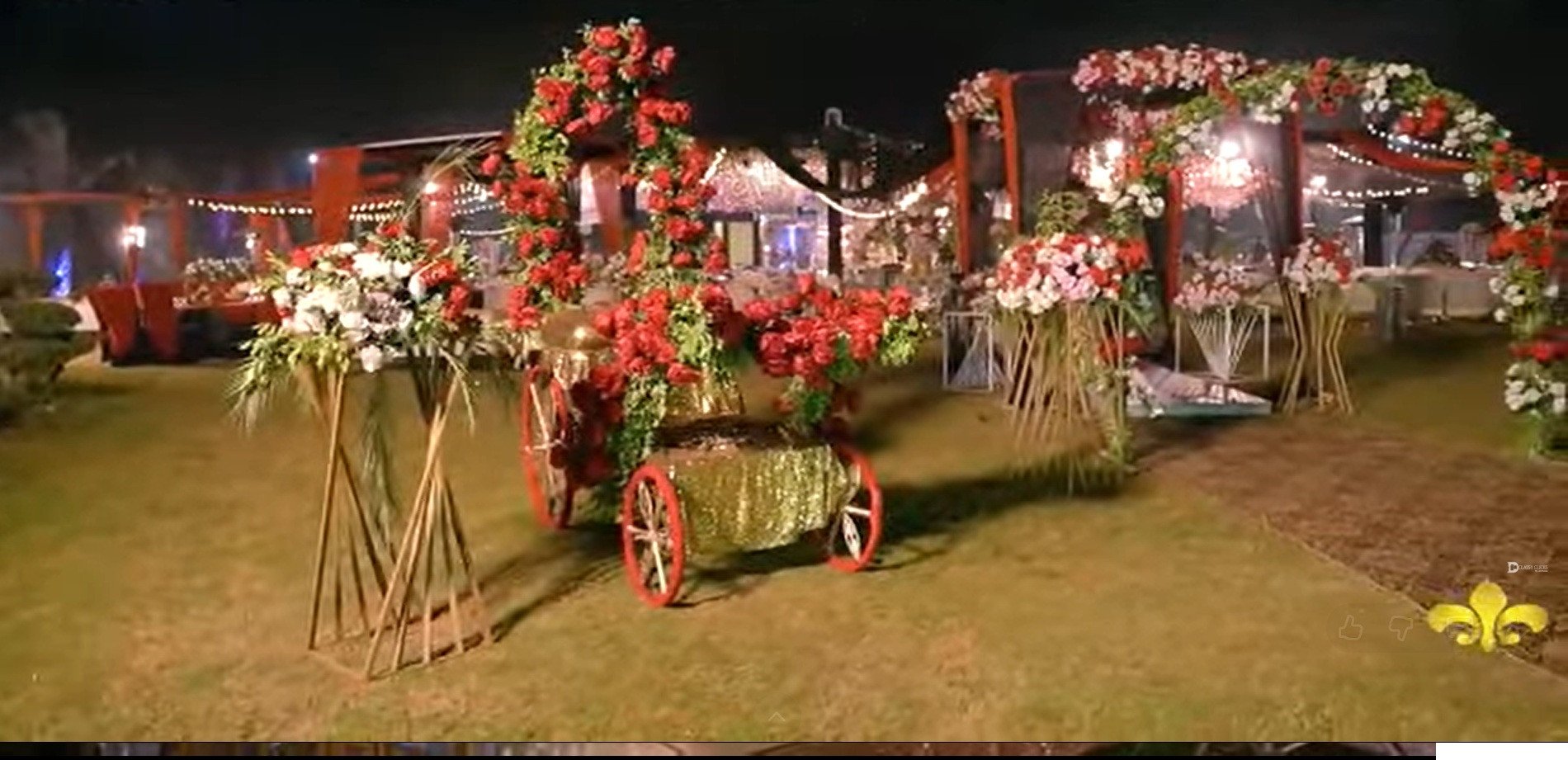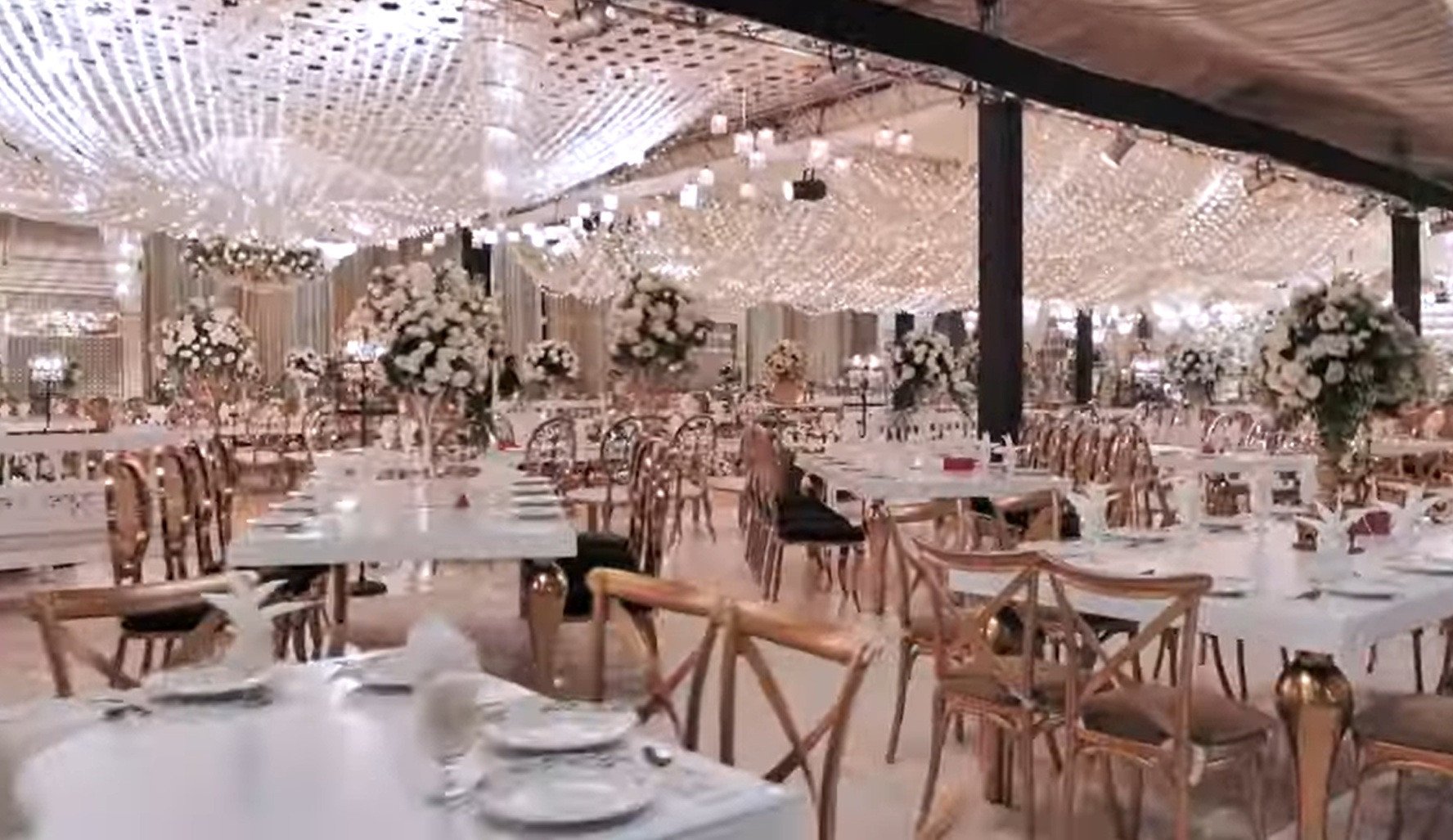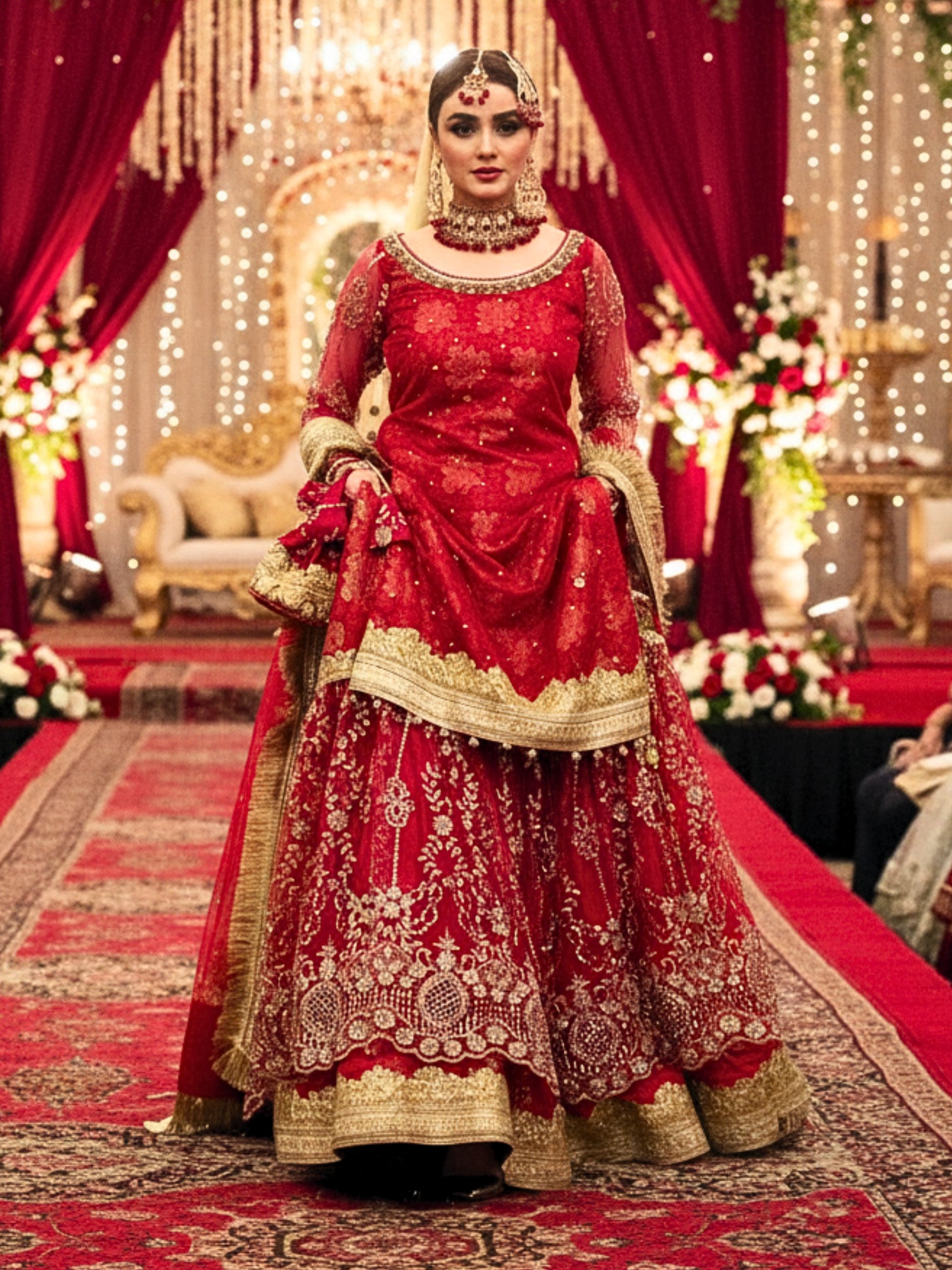PUBLISHED
November 23, 2025
For decades, winter in Pakistan has been marked by the glitter of weddings in grand banquet halls, outdoor marquees, and a blur of mehndis and baraats filling chilly December evenings. But the traditional “shaadi season,” once synonymous with the cold weather at year end, is changing fast.
Event planners, designers, and venue owners across major cities say Pakistan’s wedding calendar is shifting earlier, with October and November now rivalling December and January as peak months. What began as an occasional adjustment has become a widespread trend, reshaping one of the country’s most cherished cultural rhythms.
Families flocked to book venues and caterers latest my mid-year to book services and venues for the best time of the year, From November to February, when temperatures dropped and humidity eased. The logic was simple: the weather was pleasant, heavy bridal outfits could be worn comfortably and overseas relatives particularly those in the Gulf, UK, or North America were home for the holidays.
“December weddings were almost a tradition in themselves,” says Sadia Khan, an Islamabad-based wedding planner with 15 years of experience. “Our busiest days used to start around mid-December and run through January. We’d barely have time to sleep.”
As venues were often booked six months or a year in advance, the support industry of makeup artists, photographers, and decorators came into action and charged premium rates. The rush was so intense that Pakistanis would humourously call it the marriage marathon, where guests sometimes attended two or three functions in a single night.
That pattern, however, is beginning to change. Since 2022, the rush has started earlier each year. By mid-October, cities such as Lahore, Karachi, and Islamabad now witness full-scale wedding activity from packed salons to traffic jams near banquet halls.
“Our peak season begins in October now,” says a Karachi-based wedding photographer. “Couples don’t want to wait for December anymore. The weather is perfect, and everyone’s tired of paying double for the same services.”
Wedding portals like Shehnai.pk and Event Planet Pakistan have confirmed the trend. Data from their bookings shows October and November steadily catching up to December in popularity, expanding what used to be a short winter season into a six-month celebration window stretching from October through March.

Pakistan’s climate has grown hotter and less predictable. Shorter winters mean that November now offers the same cool evenings once exclusive to December. The autumn months are becoming more comfortable for outdoor events now.
Inflation is another major driver. With prices of gold, catering, and décor soaring, families are opting for earlier dates to escape peak-season surcharges. Venues charge up to 20 percent more in December, whereas November gives clients the same ambience at a lower cost.
As urban populations grow and the number of luxury venues remains limited, securing a booking in December has become increasingly difficult. Many families now plan weddings in October or November simply to get the date they want. “By the time December calendars open, everything’s gone,” says an Sadia Khan. “You either move earlier or settle for second-best.”
Pakistan’s large diaspora has also influenced the shift. With expensive airfares and limited vacation windows in December, many overseas Pakistanis prefer traveling in autumn. October and November offer lower ticket prices, milder weather, and fewer scheduling conflicts. Islamic months play an important role in wedding timing.

Many families avoid Muharram, Ramazan, Safar, and etc. considered months of solemn piety or mourning. Relying on the lunar year, these holy months often fall in late summer, marking October the earliest feasible for celebrations. This year, for instance, Muharram ended in mid-September, prompting a flood of October bookings.
The extended season has had ripple effects across Pakistan’s multi-billion-rupee wedding industry. From florists and caterers to designers and photographers, businesses are adjusting to a longer, steadier workflow.
“Instead of one crazy month, we now have four busy ones,” says Samina Malik, an event manager. “It’s easier to manage staff and supplies. We can plan better, and clients are happier with more flexibility.”
According to industry estimates, Pakistan’s wedding economy valued between $6 and $8 billion annually now enjoys a more balanced distribution of revenue throughout the year. Hotels and marquees that once relied on December bookings report strong occupancy in other months as well. However, the expanded season also brings logistical strain. There’s no real downtime anymore. Before, March and April were quiet months. Now these are also busy months.

Pakistan’s fashion houses have quickly adapted to the changing calendar. Leading bridal designers such as Nomi Ansari, HSY, and Maria B now unveil bridal collections in late summer rather than autumn, to accommodate earlier wedding orders.
With bridal wear prices skyrocketing, many customers also prefer earlier bookings to avoid inflation-driven increases later in the year. If you order a dress in July for an October wedding, you can save a significant amount.
For families, the new timeline offers both relief and challenges. Hosting weddings in other months the chaos of overlapping December events and makes it easier to secure quality vendors. But it also means changing long-held habits.
“When my daughter chose November for her wedding, some relatives were surprised,” says Ghazala Ahmed, a Karachi resident. “They thought December was the only proper time. But the weather was lovely, guests were comfortable, school holidays for winter break, and everything costs less. Now my nephew is planning for October next year.”
The shift is also welcomed by beauty salons who have long shouldered the pressure of back-to-back December appointments for a short, high-pressure wedding season. Sundus Rizwan, who runs a popular bridal salon in Rawalpindi, said the earlier wedding season has made her work far more manageable.
“In December, we used to work nonstop sometimes three brides in a single day,” Sundus says. “Now, with weddings spreading into October and November, we can work more comfortably. Brides get more attention, and our team isn’t exhausted all the time. This change has actually improved the quality of our work.”

She added that clients benefit from the more relaxed schedule. “When everyone wants the same few dates in December, it becomes stressful for families. Earlier weddings give them more options — and for us, it means we can give each bride the time she deserves.”
Sundus also noted that the growing trend of daytime weddings has further eased workloads: “Day events are a blessing. We can make two or three brides in the morning and another two or three in the evening. The work is spread out, and it’s much easier to manage.”
The longer wedding season has also helped tailors and designers, who used to face huge pressure in December. Irfan, a tailor who runs a busy shop in Karachi, said the earlier wedding dates have brought a big positive change to their work.
“In December, we had no time to breathe,” Irfan says with a smile. “Everyone wanted their clothes in the same two or three weeks. We had piles of orders, and it became stressful for us and for customers. Now that weddings are starting in October, the work is spread out. We can stitch more carefully, finish on time, and people get better-quality clothes.”
He explained that customers are also placing their orders earlier because they want to avoid the December rush. “When weddings are held in October or November, families don’t panic. They give us clothes earlier, which help us plan our work better.”
Irfan added that the calmer schedule has improved tailors’ health. “Before, many tailors would get serious back pain or neck issues because of sitting and working nonstop in December. Some even got sick because they weren’t resting properly. Now the workload is more balanced, so we don’t need to overstrain our bodies.”
He also mentioned that prices are easier for customers before December. “In December, rates go up because demand is too high. Tailors charge extra for urgent orders. But in other months, the prices are reasonable, so people save money too,” he said. “That’s another reason families like the earlier wedding dates.”
For Zubair Shah, primarily a western wear designer who has not so long ago ventured into bridal and groom wear, the early wedding season this year has been a delightful surprise. “It has created an unexpected surge in demand for my design house,” he says. “Clients are clearly seeking out-of-the-box and highly intricate wedding ensembles earlier than usual. This validates that personalised, bespoke luxury resonates strongly, even as we manage these early orders entirely through our private studio operations. It’s an exhilarating challenge to push the boundaries of complex design for so many couples and their families right at the start of the season.”
Despite the earlier dates, the value of Pakistani weddings remains untouched: multi-day celebrations filled with colour, music, and family reunion. The sequence of mehndi, baraat, and valima continues to describe the country’s social calendar, only now beginning a few weeks sooner. Sociologists note that the change reflects a broader cultural adaptation blending deep-rooted tradition with practical modern choices. Pakistanis are not abandoning custom. They are simply adjusting to new economic and climatic realities. It shows flexibility without losing identity.
Experts predict that the wedding season will continue to expand, possibly reintroducing strong spring months like March and April, especially for northern-destination weddings in Hunza, Swat, and Murree. As winters grow shorter, October may soon become the new “December” for Pakistan’s wedding industry.
“The celebrations will always go on,” says Khan with a laugh. “Only the calendar is changing.”
Rabia Khan is writer who covers social issues, literature, and cultural values of Pakistan. She can be reached at rabiayousufzai26@gmail.com
All facts and information are the sole responsibility of the write


